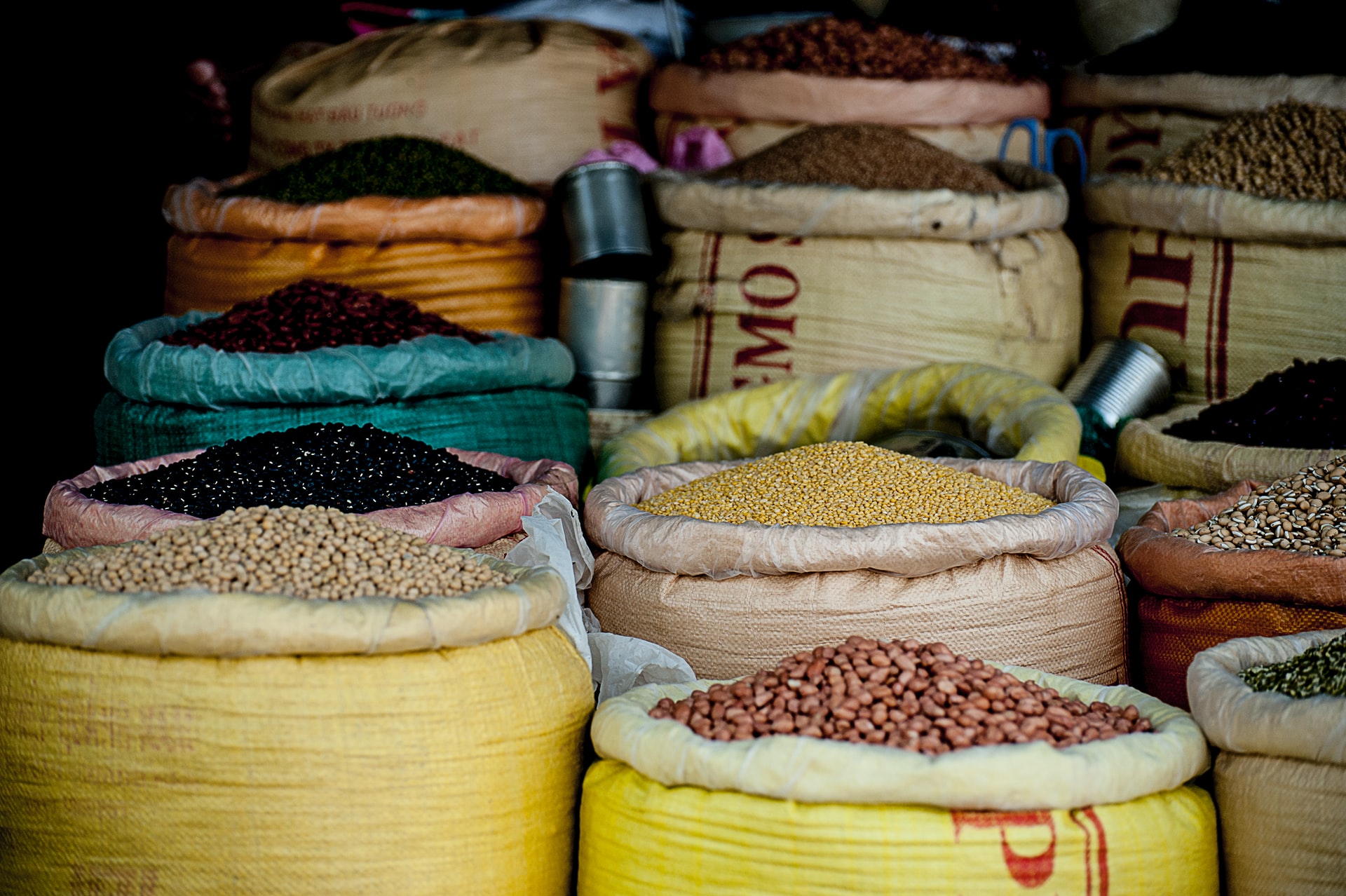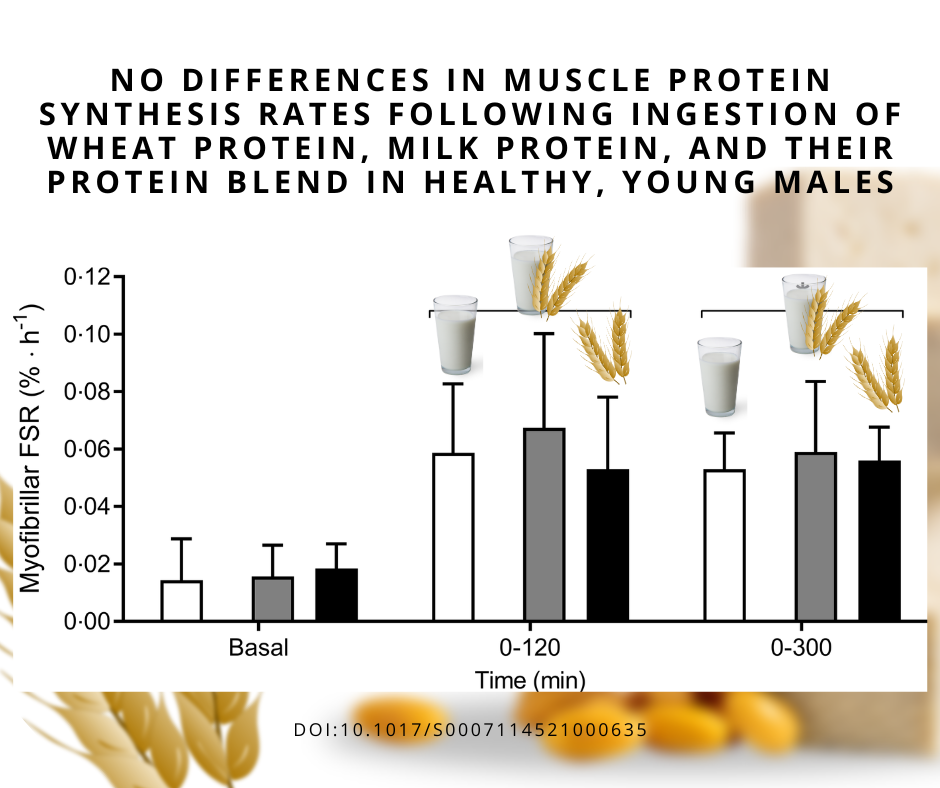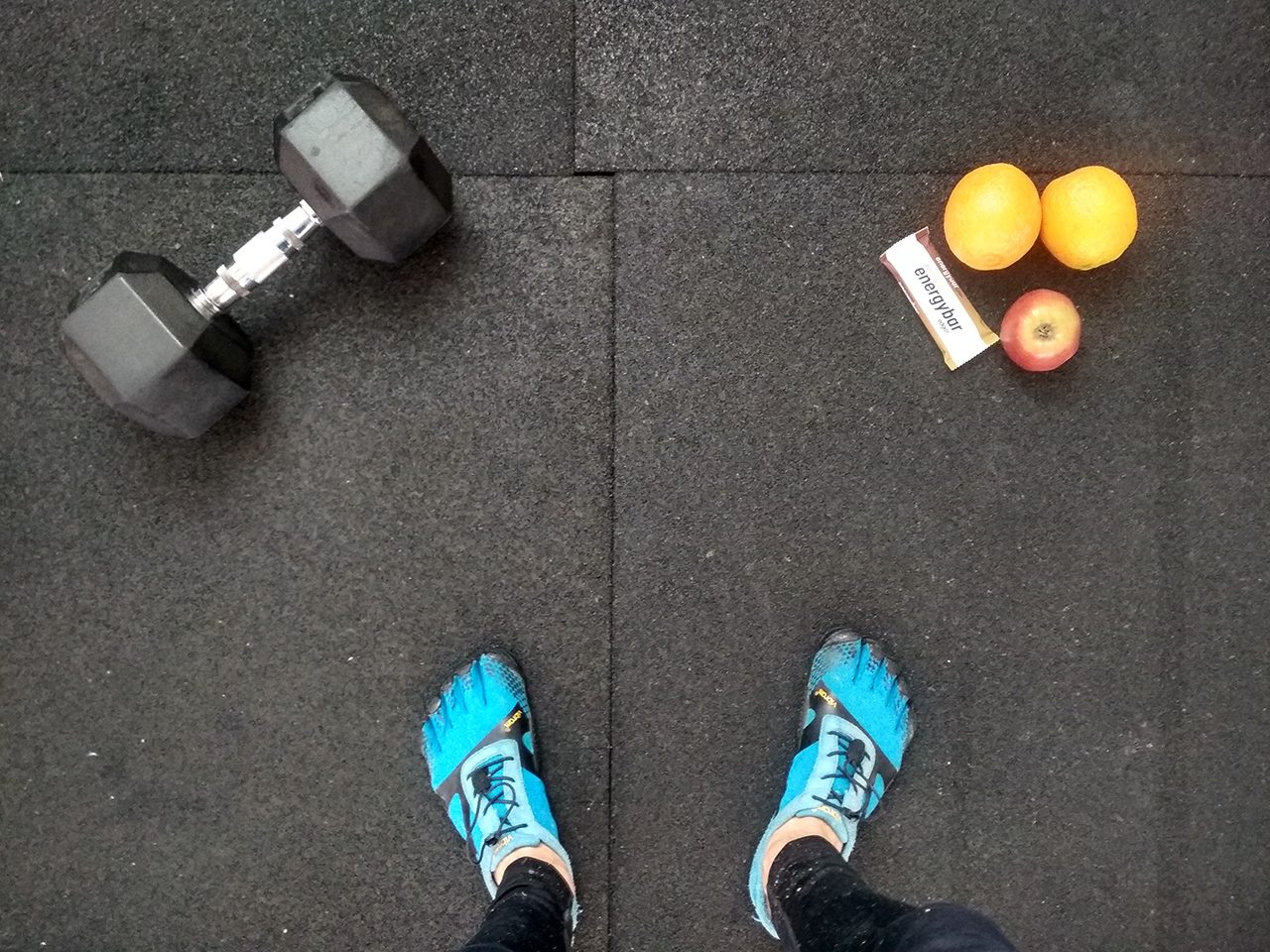Plant Protein, Muscle Growth, and Performance
Are plant and animal proteins the same?
Protein is one of the main macronutrients we need to get from food.
It provides our body with amino acids, which are used as the building blocks of protein. There are 20 amino acids, 9 of which are essential (EAA) and conditionally essential. The others are non-essential, which means that our body can make them.
It is clear to everyone that animal and plant proteins are not exactly the same. Basically, when we compare these proteins, we are looking at the amino acids they are composed of.
While animal proteins are high in EAAs, plant proteins lack one or more of the EAAs in sufficient amounts. Therefore, they have long been considered inferior.
In fact, studies usually compare only one variable, and in the case of proteins, these tend to be comparisons like whey protein versus wheat protein.
This would be relevant if we only had protein from one source in our normal diet. Throughout the day, and even within a single meal, we consume a number of foods that contain protein. Thus, we get different amounts of amino acids from different sources.
These combinations are also used when mixing vegetable proteins. The standard is a combination of pea and rice protein or pea, rice and hemp protein.

Are plant sources of protein inferior?
This question has only recently started to attract the curiosity of people and scientists alike, and several studies have been conducted comparing the differences between animal and plant protein and their potential for muscle protein synthesis (how much muscle mass we build).
To determine the potential for building muscle mass, scientists typically measure the blood levels of amino acids.
Of all the amino acids, the amino acid leucine is particularly important as it acts as a trigger for protein synthesis. In order to trigger muscle protein synthesis, a threshold of 1.8 – 3.0g of leucine in a meal is necessary. Hence the recommendation is to provide 25g or more of protein from quality sources in a a meal.
Most studies therefore monitor blood EAA concentrations after protein ingestion. Whey protein contains high amounts of EAAs and is therefore also considered the gold standard among protein supplements.
Plant proteins are low in leucine and are therefore considered a lower quality protein source compared to animal proteins.
For example, a study by Brennan JL, 2019 compared blood amino acid concentrations after ingestion of whey protein and plant protein. The plant proteins were even modified to match the amino acid composition of the whey protein. The results clearly shown higher concentrations of EAAs in favor of whey protein.
Plant proteins contain lower amounts of essential AAs and even when mixed to have a similar composition to whey protein, they do not increase blood concentrations of EAAs as much as whey protein concentrate.
So does this mean that if we only eat plant protein, we will be at a disadvantage?
In research where blood levels of amino acids are measured, protein sources are often provided in isolation and after a prolonged fast, and without strength training. Strength training is the most important factor for stimulating muscle protein synthesis.
For building muscle, the amount of amino acids we ingest from food is not the only factor. There is also a physiological limit to the rate of muscle growth.
If we imagine a conveyor belt in a car manufacturing facility, having more car parts will not speed up the belt on which the parts are moved.
If we look at studies that examine the effect of diet on building muscle mass, we find a different answer.
The lower levels of leucine, lysine, and methionine in wheat protein or in a mixture of wheat and milk protein do not limit the ability to elicit a significant and sustained muscle protein synthetic response – Brennan JL, 2019
Hevia-Larraín, 2021 in a studied young vegan (veg) and non-vegan (omni) men and how they respond to building muscle mass over 12 weeks with twice-weekly strength training. Alongside their normal diet, they also included a protein supplement in the form of soy or whey isolate to achieve a daily intake of 1.6g/kg. The results of the study shown no differences between veg and omni diets and the effect on muscle building in young men not used to strength training.
The current study shows that ingestion of 30g of protein either in the form of milk, wheat or a mixture of wheat and milk protein is followed by a significant increase in circulating AA concentrations in healthy young men. Despite the observation of greater after-meal plasma EAA availability after milk protein compared with ingestion of wheat protein or their blend, muscle protein synthesis rates after-meal did not differ between groups – Pinckaers, P.,2021
Wilkinson et al, 2023 in a study investigated the effect of leucine on protein synthesis. They found that in strength training, the main factor for protein synthesis is the training itself. Although leucine content had a significant effect on blood amino acid concentrations, leucine content in the meal had almost no effect on protein synthesis. Differences were observed only in participants aged 54-74 years.
When comparing the two proteins, the acute MPS response in muscle after exercise does not translate into muscle mass!

What about the athletic population?
Another problematic point is that even if the measured EAA concentrations from animal protein are higher than those from plant protein, does this mean that the final results will be better?
To my knowledge, there is no indication of this, and rather we see that short-term observations such as higher EAA concentrations in blood plasma after whey isolate do not translate into better exercise or muscle-building outcomes compared to plant protein.
Eight weeks of daily 24-g doses of rice or whey protein combined with an eight-week strength training program resulted in similar changes in body composition and performance. Moon, J. M.,2020
Similar results have been demonstrated with pea protein compared to whey protein in adaptation to high-intensity training. Banaszek A, 2019
A case study by Davey D., 2021 followed a young 25-year-old soccer player and his transition from an omnivore to a vegan diet. As a result, no negative consequences were observed in a comparison between seasons.
Ciuris C, 2019 in a study on endurance athletes found that although vegetarian diets had lower protein intake than non-vegetarian diets, vegetarian female athletes had higher VO2max values. This effect was not observed in men.
The study looked at whether pea protein could replace whey protein without harming recovery or performance in athletes.
A study by Loureiri LL et al involved 12 male athletes who were an average of 18.4 years old.
They weighed approximately 69.4 kg, measured approximately 1.76 m, had a body mass index of 22.3 and a body fat percentage of 16.26%.
These athletes trained at least 2 hours per day, six days per week and had competed at the national level for at least 2 years.
This study had a high level of control, so the results from it can be considered very credible.
Although there were some differences in the recovery measures observed in the hours immediately after a game, there were no metabolic changes at 72 hours that would indicate cellular damage.
Thus, the study concluded that pea protein may be a good alternative to whey protein without adversely affecting recovery or performance in athletes. Importantly, protein intake was 2.35g/kg in the whey protein group and 2.26g/kg in the pea protein group, which is higher than the recommended dose of 1.6-2.2g/kg.

Protein intake in vegans
There are many studies comparing the protein intake of different dietary populations (Mariotti F, 2019) where the protein intake of the omnivorous population has been shown to be 80-90g (1.28g/kg) while that of the vegan population was 60-70g (0.99g/kg).
However, this may not be true for athletes who usually supplement with protein in the form of supplements in addition to their regular diet.
A smaller study on endurance athletes showed insufficient protein intake in endurance, vegan-eating athletes. The vegetarians had approx. 79g (1.1g/kg) of protein while non-vegetarians had 102g (1.4g/kg). This was also reflected in better body composition in the non-vegetarian athletes. (Ciuris C, 2019)
The protein intake in vegetarian and vegan diets tends to be lower compared to non-vegan diets, which also affects body composition (lower weight and less skeletal muscle). The negative impact on athletic performance is not clear despite inadequate dietary protein intake.
Female athletes and women on a vegan diet in particular need to be careful about protein in their diet.
| 25g of Protein Equivalent | Energy (kcal) | |
|---|---|---|
| Tofu | 210g | 218 |
| Tempeh | 124g | 238 |
| Soy Meat | 75g | 250 |
| TVP | 50g | 165 |
| Seitan | 120g | 127 |
| Protein Pasta | 60g | 192 |
| Lentils, Cooked | 190g | 483 |
| Spirulina | 44g | 128 |
| Soy Protein Isolate | 28g | 98 |
| Pea Protein Isolate | 28g | 98 |
Three examples to maximize protein synthesis using plant-based proteins:
- 150g tofu + 50g dark leafy greens (broccoli, spinach, kale…)
- 200g tempeh
- 150g cooked rice and 250g cooked peas + 60g spinach
Do you want more high-protein vegan meal ideas? Get free High-Protein Vegan Meal Plan Sample
Summary
Food and its associated protein intake is not the only factor in the ability to build muscle.
We don’t eat isolated protein, but food that also contains other substances such as sugars, fats, fiber, vitamins and minerals, antioxidants that contribute to overall health and the ability to build muscle.
It is therefore useful to think about protein in the context of food and food in the context of lifestyle. There are factors that have a greater impact on the ability to build muscle and improve athletic performance than the type of protein. These are exercise, overall energy intake, hormonal environment, sleep which all have a cascading effect on health and the ability to build and maintain muscle mass.
For the vegan population, the problem is not the quality of protein, but often the lack of protein intake. Vegans simply take in less protein from their diet than non-vegans.
If you consume at least 1.75 – 2 grams of protein per kilogram (approximately 0.8-1.0 g per pound) of fat-free mass per day, evenly distributed over 3 – 6 meals, you’ll meet all the most important requirements for optimizing muscle growth from a protein perspective.
That’s why I recommend educating yourself on nutrition, reading food labels and learning which foods are high in protein and then incorporating them into your diet
Is soy a safe source of protein?
Soy has been the subject of much debate in the field of food safety for years, making it one of the most researched foods. Thanks to all the attention and research, we can now safely say that eating soy is perfectly safe as long as you are not allergic to it. (Reed, K. E. 2021, Domínguez-López I, 2020,)
There is a difference in how much-processed soy you get and how much of it you consume. While consuming soybeans may be perfectly safe, ultra-processed artificial meats made from soy protein may not be ideal for you on a daily basis.
Just follow the general rule of thumb and consume soy in moderation alongside other plant-based protein sources. Studies showing the adverse effects of soy have been done on rats, not humans, and at doses well in excess of normal consumption. The WHO considers three servings a day to be safe.
One serving of soy equals:
- 80 g of tofu
- 1 cup of soy milk
- 1/2 cup eydam
- 1/4 cup soybeans
Eat: Soybeans, tofu, natural tempeh, natto and edamame beans, soy milk
Snack Idea: Roast soybeans with your favorite seasonings and enjoy as a protein snack or add to salads.
Ready to Become a High Performing Athlete?
Sources:
- Banaszek A, Townsend JR, Bender D, Vantrease WC, Marshall AC, Johnson KD. The Effects of Whey vs. Pea Protein on Physical Adaptations Following 8-Weeks of High-Intensity Functional Training (HIFT): A Pilot Study. Sports. 2019; 7(1):12. https://doi.org/10.3390/sports7010012
- Brennan JL, Keerati-u-rai M, Yin H, Daoust J, Nonnotte E, Quinquis L, St-Denis T, Bolster DR. Differential Responses of Blood Essential Amino Acid Levels Following Ingestion of High-Quality Plant-Based Protein Blends Compared to Whey Protein—A Double-Blind Randomized, Cross-Over, Clinical Trial. Nutrients. 2019; 11(12):2987. https://doi.org/10.3390/nu11122987
- Ciuris C, Lynch HM, Wharton C, Johnston CS. A Comparison of Dietary Protein Digestibility, Based on DIAAS Scoring, in Vegetarian and Non-Vegetarian Athletes. Nutrients. 2019; 11(12):3016. https://doi.org/10.3390/nu11123016
- Domínguez-López I, Yago-Aragón M, Salas-Huetos A, Tresserra-Rimbau A, Hurtado-Barroso S. Effects of Dietary Phytoestrogens on Hormones throughout a Human Lifespan: A Review. Nutrients. 2020; 12(8):2456. https://doi.org/10.3390/nu12082456
- Hevia-Larraín, V., Gualano, B., Longobardi, I., Gil, S., Fernandes, A. L., Costa, L., Pereira, R., Artioli, G. G., Phillips, S. M., & Roschel, H. (2021). High-Protein Plant-Based Diet Versus a Protein-Matched Omnivorous Diet to Support Resistance Training Adaptations: A Comparison Between Habitual Vegans and Omnivores. Sports medicine (Auckland, N.Z.), 51(6), 1317–1330. https://doi.org/10.1007/s40279-021-01434-9
- Loureiro LL, Ferreira TJ, Cahuê FLC, Bittencourt VZ, Valente AP, Pierucci APTR. Comparison of the effects of pea protein and whey protein on the metabolic profile of soccer athletes: a randomized, double-blind, crossover trial. Front Nutr. 2023;10:1210215. Published 2023 Sep 22. doi:10.3389/fnut.2023.1210215
- Mariotti F, Gardner CD. Dietary Protein and Amino Acids in Vegetarian Diets-A Review. Nutrients. 2019;11(11):2661. Published 2019 Nov 4. doi:10.3390/nu11112661
- Moon, J. M., Ratliff, K. M., Blumkaitis, J. C., Harty, P. S., Zabriskie, H. A., Stecker, R. A., Currier, B. S., Jagim, A. R., Jäger, R., Purpura, M., & Kerksick, C. M. (2020). Effects of daily 24-gram doses of rice or whey protein on resistance training adaptations in trained males. Journal of the International Society of Sports Nutrition, 17(1), 60. https://doi.org/10.1186/s12970-020-00394-1
- Pinckaers, P., Kouw, I., Hendriks, F., Van Kranenburg, J., De Groot, L., Verdijk, L., . . . Van Loon, L. (2021). No differences in muscle protein synthesis rates following ingestion of wheat protein, milk protein, and their protein blend in healthy, young males. British Journal of Nutrition, 126(12), 1832-1842. doi:10.1017/S0007114521000635
- Reed, K. E., Camargo, J., Hamilton-Reeves, J., Kurzer, M., & Messina, M. (2021). Neither soy nor isoflavone intake affects male reproductive hormones: An expanded and updated meta-analysis of Clinical Studies. Reproductive Toxicology, 100, 60–67. https://doi.org/10.1016/j.reprotox.2020.12.019
- Wilkinson K, Koscien CP, Monteyne AJ, Wall BT, Stephens FB. Association of postprandial postexercise muscle protein synthesis rates with dietary leucine: A systematic review. Physiol Rep. 2023;11(15):e15775. doi:10.14814/phy2.15775
